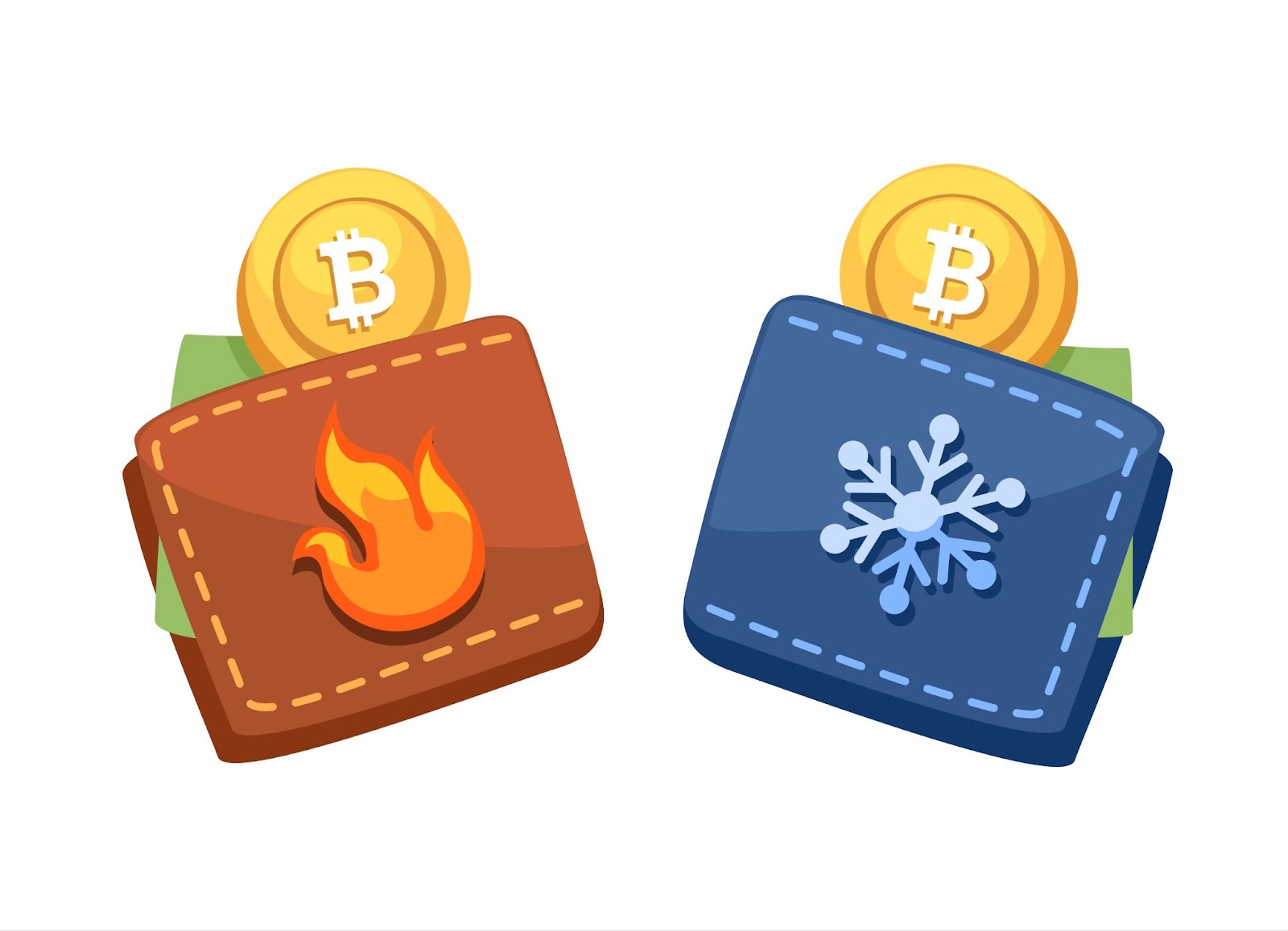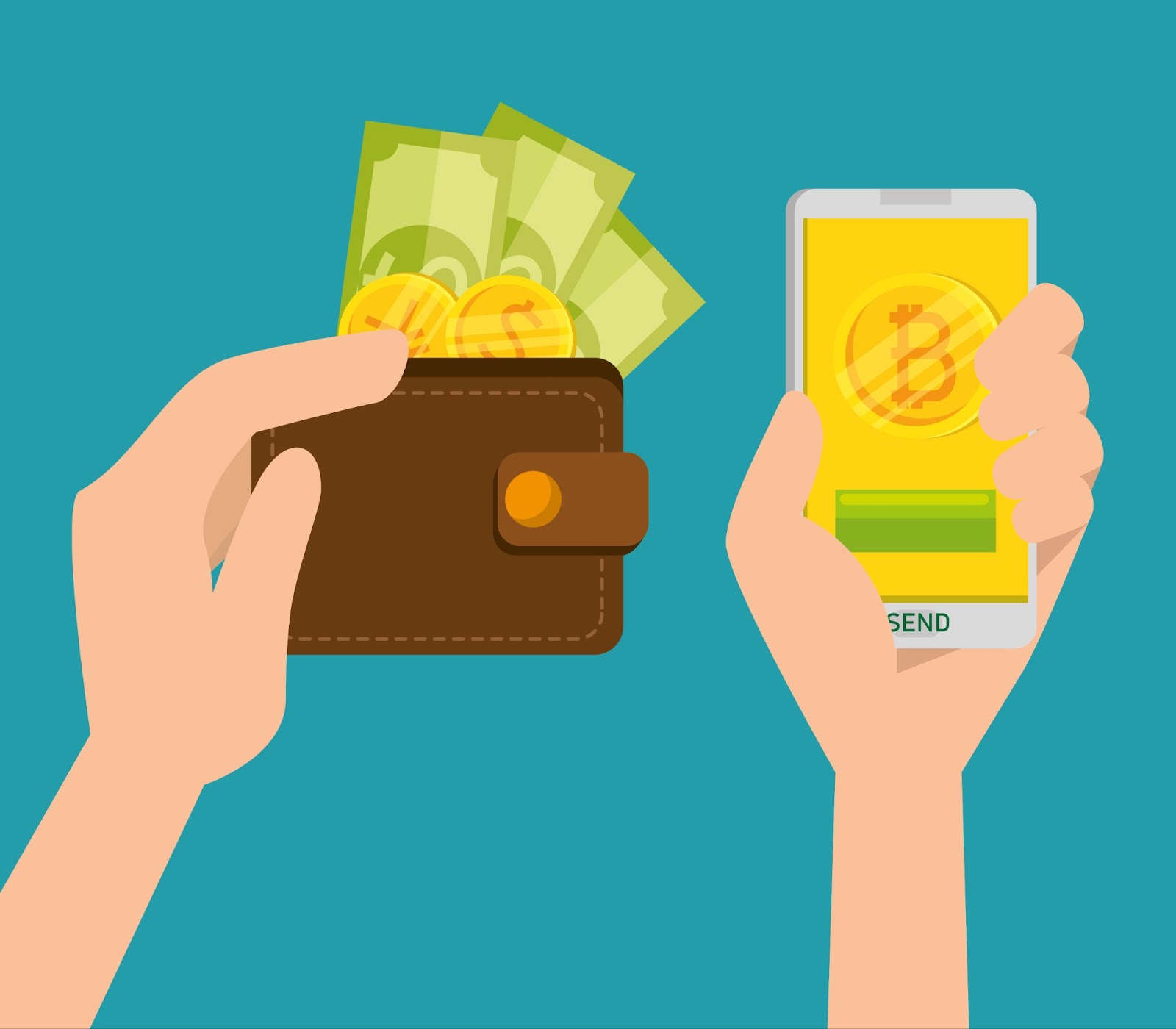TradingKey - In the previous article, we briefly introduced the classification of crypto wallets. You should now have a basic understanding of the "piggy banks" for your digital assets.
But when you hold Bitcoin (BTC), you’ll inevitably face this crucial question: Hot wallet or cold wallet – which one should you choose?
Let’s dive in and find out!

(Source: Shutterstock)
What Is a Cold Wallet?
Imagine you want to store your hard-earned cryptocurrency in a place that’s almost impossible for hackers to breach. Which wallet would you pick?
A hot wallet? No way. That’s like leaving cash at your doorstep, waiting to be stolen. You should consider a cold wallet instead.
A cold wallet is a wallet that stays completely disconnected from the internet, designed specifically for secure crypto storage.
Thanks to this “offline” nature, it effectively protects against common online threats like malware and phishing attacks.
Think of a cold wallet as your digital asset vault – the kind buried deep underground for maximum security.
How Does a Cold Wallet Work?
A cold wallet doesn’t interact with any smart contracts or online services. This ensures your private key remains secure from internet exposure.
And here’s the thing — your private key is the only proof that you own your cryptocurrency.
If you lose it, or if someone else gets hold of it, everything in your wallet is gone for good.
So, what does a cold wallet do?
Its job is simple: keep that crucial "key" safe for you. As long as you store it properly, no one will be able to touch your assets.
What Are the Different Types of Cold Wallets?
When most people hear “cold wallet,” they immediately think of hardware wallets like Ledger or Trezor. But cold storage comes in more than just one form.
You can write down your keys on a piece of paper and create a “paper wallet.” You can even engrave them onto metal to make a “metal wallet.” Or you could generate a key yourself and simply never connect it to the internet — that’s also considered a cold wallet.
Different methods suit different people. The key is to identify a solution that feels both secure and manageable for you.
Why Should You Consider Using a Cold Wallet?
If you’re holding a significant amount of Bitcoin or other cryptocurrencies and plan to keep them for the long term, a cold wallet should be your top choice.
Its biggest advantage? Rock-solid security.

(Source: Freepik)
Are There Any Downsides to Cold Wallets?
While cold wallets are highly secure, they’re not perfect.
First, you have to pay attention to their physical safety. Whether it's a hardware wallet, paper wallet, or metal wallet, all of them can be lost, damaged, or stolen.
For example, if you leave your hardware wallet in a taxi and don’t back up your recovery phrase, your coins are gone forever. And if you're using a paper wallet, a fire or spilled water could eradicate it.
Moreover, utilizing a cold wallet may present a bit more complexity in comparison to a hot wallet.
Every transaction usually requires connecting the device, confirming the transfer, and entering a password, which takes more steps than using a regular online wallet. If you're new to crypto, this process might feel a bit tedious and could lead to mistakes.
In today’s world, where hackers and cyber threats abound, numerous exchanges and online wallets have been targeted, resulting in substantial losses.
But those who stored their coins in cold wallets remained unharmed.
This proves one important rule in crypto: as long as you keep your private key offline, hackers can't get to your funds.
Plus, it's worth noting that cold wallets usually require an upfront cost, typically ranging from $60 to $170.
What Is a Hot Wallet?
If you're just getting started with cryptocurrency and want to quickly start receiving, sending, or trading your coins, you'll probably use a hot wallet.
A hot wallet is a type of wallet that remains online, allowing you to access your digital assets whenever needed.
There's no need to unplug cables or connect external devices — just open the app on your phone or log in from your computer.
For people who frequently buy and sell Bitcoin, this kind of wallet is a must-have.
Think of it like your everyday physical wallet — it holds a small amount of cash you’re ready to spend at any moment.
In contrast to a cold wallet, which serves as a secure vault for long-term storage, a hot wallet is designed for convenience and quick access.
How Does a Hot Wallet Work?
When you download a Bitcoin wallet app on your phone and complete the sign-up process, the app generates a pair of cryptographic keys for you: a private key and a public key.
Your private key acts like the master password to your account, and it’s stored securely on your device. The public key, on the other hand, is what others use to send you Bitcoin.
Whenever you want to make a transaction, the wallet connects to the Bitcoin blockchain via the internet, fetches the latest ledger data, and uses your private key to digitally "sign" the transaction.
This signature proves that you are the rightful owner of those funds. Once signed, the transaction is transmitted across the blockchain network and is pending confirmation.
The whole process is mostly automatic — all you have to do is tap a few buttons on your screen. Easy as that.
What Types of Hot Wallets Are There?
Hot wallets are typically software-based, which means you can access them anytime from your smartphone, tablet, or laptop.
Some of the most popular hot wallets available today include Coinbase Wallet, MetaMask, Trust Wallet, and Exodus Wallet.
Each has its unique features — some offer a more user-friendly interface, while others support a wider range of cryptocurrencies. You can choose the option that aligns best with your needs and preferences.

(Source: Freepik)
Why Would You Like a Hot Wallet?
If you're an active trader, a hot wallet is your best companion in the crypto world.
Its biggest advantage? Convenience and speed.
No matter where you are, as long as you have an internet connection, you can instantly send, receive, buy, or sell your crypto.
Especially during times of high Bitcoin price volatility, you can react right away and seize market opportunities without missing out due to slow operations.
Plus, hot wallets are super efficient when it comes to transactions.
Unlike cold wallets that require connecting devices, signing offline, and uploading again, hot wallets are almost “one-click-and-done.”
They’re perfect for small, everyday transactions like online payments or sending coins to friends. In short, they make using Bitcoin as easy as using Alipay or PayPal.
What Are the Risks of Using a Hot Wallet?
Despite their convenience, hot wallets come with a serious downside — they're always connected to the internet.
Think of it like leaving your wallet in an open drawer by the front door. It’s easy to grab when you need it, but also easier for someone else to take.
Hackers can steal your private key through phishing websites, malware, fake apps, and other cyber attacks.
And once your private key is gone, so are your assets — no way to fight back.
Furthermore, hot wallets rely heavily on consistent internet connectivity.
If the network goes down, you might not be able to complete transactions when it matters most.
That frustrating feeling of being "stuck" at the wrong time is something you want to avoid.
How Do Cold Wallets and Hot Wallets Compare?
To help you better understand the differences between cold and hot wallets, here's a comparison table:
Comparison Item | Cold Wallet | Hot Wallet |
Connection Status | Offline, not connected to the Internet | Online, always connected to the Internet |
Security | Extremely high, physical isolation effectively resists network attacks | Relatively low, susceptible to network attacks, malware infections, phishing risks, etc. |
Convenience | Relatively complex operation; requires connecting devices or manual processing for transactions, takes more time | Simple and convenient operation; allows transactions anytime and anywhere via the internet |
Applicable Scenarios | Suitable for investors holding a large amount of Bitcoin for long-term security storage of assets | Suitable for investors who frequently trade Bitcoin and need daily small transactions and instant transaction requirements |
Device Dependency | Depends on hardware devices (like hardware wallets) or physical media (like paper wallets); damage or loss may lead to asset loss | Depends on connected devices (like phones and computers); device failures or network issues may affect usage but assets generally remain safe |
Cost | Initial costs can be significant | Usually free or relatively low cost |
How to Choose the Bitcoin Wallet That’s Right for You?
By now, you’re probably wondering which wallet to use. First off, congratulations on taking your crypto assets seriously!
Choosing the right wallet for your Bitcoin journey is like picking the perfect lock for your money — the right one keeps your funds safe and makes transactions smooth.
When it comes to the two main options — cold wallets vs. hot wallets — you might feel stuck deciding which one to go with.
However, it's important to note that the answer isn't overly complicated. It all comes down to how you use your crypto, how much you hold, and what matters most to you.
Are You Storing Big Bucks or Making Frequent Moves?
If you’re holding a significant amount of Bitcoin — like tens of thousands or even hundreds of thousands of dollars worth — security is probably your top priority.
In that scenario, a cold wallet would be the most suitable option.
But if you’re just a dabbler — buying small amounts, sending crypto occasionally, or not planning to hold long-term — a hot wallet is more your style.
It’s super convenient, letting you send, receive, and trade anytime without plugging in devices, signing offline, or waiting for confirmations. Efficiency? Top-notch.
And here’s a smart middle ground: use both.
Store the bulk of your assets in a cold wallet for peace of mind, while keeping a smaller portion in a hot wallet for daily transactions. That way, you get security and convenience.
Are You a High-Frequency Trader or a Long-Term HODLer?
This matters a lot. If you’re glued to price charts and constantly buying/selling, you need a wallet that’s fast and easy to use.
Bitcoin’s price moves fast — a second of hesitation could cost you hundreds.
A hot wallet keeps you ready to act at a moment’s notice, so you never miss a chance to profit.
On the flip side, if you’re a die-hard HODLer who believes in Bitcoin’s long-term value and only trades once or twice a year, a cold wallet is your perfect match.
Security Can’t Be an Afterthought
Whether you go cold or hot, there are basic security steps you must follow. Otherwise, even the best wallet won’t save you.
First, ditch passwords like “123456” or your birthday — they’re too easy to crack. A strong password should mix uppercase, lowercase, numbers, and symbols, plus you should update it regularly.
Next, enable two-factor authentication (2FA). Many wallets support it via SMS codes, Google Authenticator, or biometrics. Even if your password leaks, 2FA blocks hackers from getting in.
Most importantly, back up your private keys!
Here’s a rule to live by: No private keys, no crypto. It’s that simple.
Store backups securely — encrypted USB drives, fireproof safes, etc. — and never share them with anyone. Losing your keys means losing everything.


